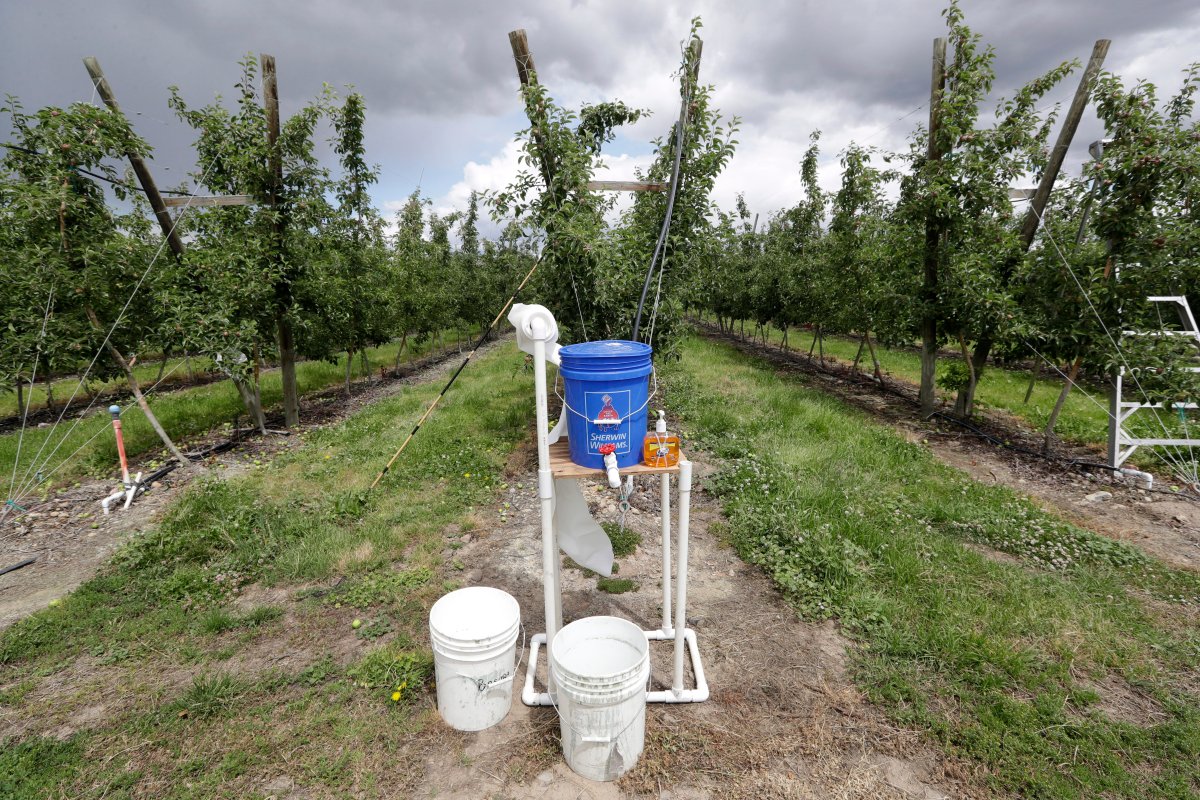Canada’s largest support group for migrant workers is pleading with the federal government and the Province of Ontario to reverse a decision that allows positive asymptomatic COVID-19 farmworkers to continue to work.

The Migrant Workers Alliance for Change say they were “horrified” by the move and contests the action “jeopardizes public health” and creates an “unsafe workplace.”
“Ontario has responded to three farmworker deaths by signing a death warrant for more migrant workers,” executive director for the alliance Syed Hussan said in a statement.
Since mid-June, the province has seen three migrant farmworkers from Mexico die after being infected with the virus – two working in Windsor-Essex and one who worked at a Scotlynn Group Farm in Norfolk County.
The deaths forced the Mexican government in early June to temporarily stop allowing workers to leave for Canada as a precaution. However, after a commitment from Ottawa to increase inspections on farms and an offer of more general support for migrant workers, Mexico lifted its ban in mid-June.
Kit Andres, who works with the alliance in the Niagara region told Global News the problem is the workers don’t have the “tools” to protect their own health and safety while working and living on the province’s farms.
“We’ve all seen the videos of cramped living quarters, separations only by cardboard. Not enough water. Not enough toilet facilities. So we’re asking that the Ontario government immediately reverse this decision to send infected workers to work, otherwise more workers will die,” said Andres.
In addition to allowing positive workers to stay on the job, the province’s three-point plan promises to reduce the risk of transmission of the virus on farms through on-site testing and access to employment benefits including unpaid leave due to COVID-19.
“Clearly, our agricultural sector in this part of the province is being hit particularly hard. Our three-point plan will give farmers the support they need to protect essential workers and ensure they can keep putting food safely on our tables,” Premier Doug Ford said in a statement on Wednesday.
Ontario’s minister of agriculture Ernie Hardeman said the need for getting the province’s migrant workers back on track was “critical” to getting much-needed produce to the public.
“It is critical that we step up our efforts at this challenging time to protect these essential workers and ensure our local produce gets to market,” said Hardeman.
Doreen Buksner, a managing consultant at BDO Canada’s immigration services, says agriculture in Canada has a labour shortage in the neighbourhood of 50,000 jobs which she says is likely to increase in the next decade.
Buksner says the problem is new generations of Canadians are shying away from the business of farming and that it’s not a common career choice for young Canadians.
“Therefore farms have to rely on foreign workers to support the gaps and ensure the health and safety of their livestock or success of the harvest season,” Buksner told Global News.
BDO Canada says that shortage is the gateway for a farming business to clear its Labour Market Impact Assessment (LMIA) application which demonstrates to Service Canada there are no available or qualified Canadian candidates for the job.
“The application also includes a formal inspection of the housing/accommodations, and requires that the foreign worker is being paid at least a median wage to the Canadian rate ($17 per hour in the Windsor area currently),” Buksner said.
Under current COVID-19 measures, Service Canada has prioritized agriculture applications by issuing approvals in about 2-3 business days, according to BDO Canada.
- Canadian man dies during Texas Ironman event. His widow wants answers as to why
- ‘Shock and disbelief’ after Manitoba school trustee’s Indigenous comments
- Several baby products have been recalled by Health Canada. Here’s the list
- ‘Sciatica was gone’: hospital performs robot-assisted spinal surgery in Canadian first
Upon arrival, workers quarantine for 14 days and are paid for their lost time.
In accordance with the province’s new plan, Brant County’s acting medical officer of health issued an order on Wednesday to reinforce a 14-day quarantine period for farm workers arriving from out of the country. The order will make the stipulation mandatory before migrant workers may take to a field.
“In addition, employees will be restricted to working on only one farm and will be instructed to work within the same confined group while on the farm,” Dr. Elizabeth Urbantke said in an update on Tuesday afternoon.
Urbatnke said the move comes after some “lessons learned” from the outbreaks at a number of at farms in Windsor-Essex and a major outbreak with a Scotlynn Group Farm in Vittoria, Ont., that saw 200 workers test positive for COVID-19.
Brantford, Ont., became a part of that outbreak when 119 migrant workers from the county farm were transported to city hotels in May for self-isolation.
Brant County’s Health Unit says those workers have since returned to their residences at the farm.
In a statement on Facebook, Scottlyn says it has been compensating those who have been unable to work since the outbreak in early June. The grower says its also been implementing on-site and random testing as per guidelines set by the Haldimand-Norfolk health unit.
But for the Migrant Workers Alliance’s Andres, the changes fall short. She says she believes a resolution lies with Ottawa.
“The only way that this can be addressed is by the federal government stepping in and making sure that workers are able to protect their own health and safety by giving them permanent resident status,” said Andres.
On Friday during a parliamentary committee, federal health minister Patty Hajdu said stories she’s heard about the treatment of migrant workers across the country equate to “a national disgrace.”
Hajdu went on to say she would be working with employment minister Carla Qualtrough on reforming the temporary foreign worker program, however, no details were given on what that might look like.
— With files from the Canadian Press










Comments